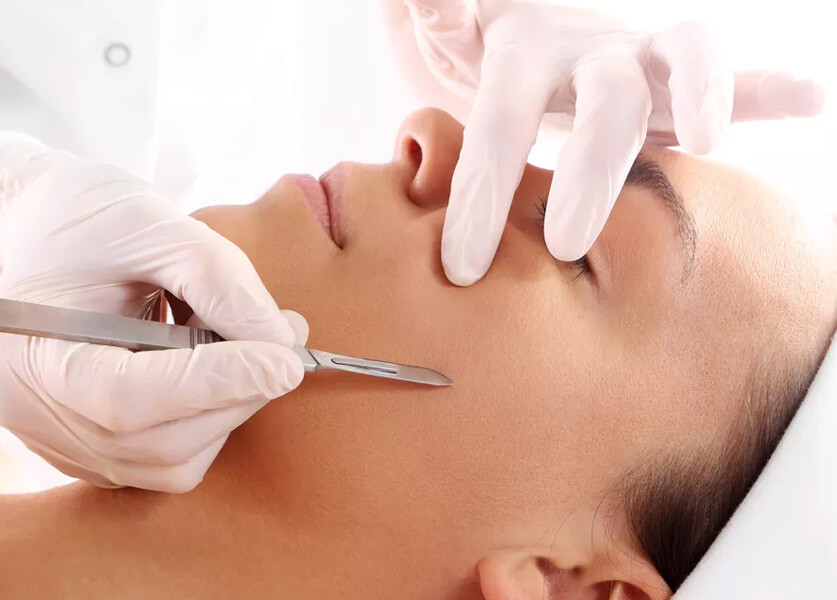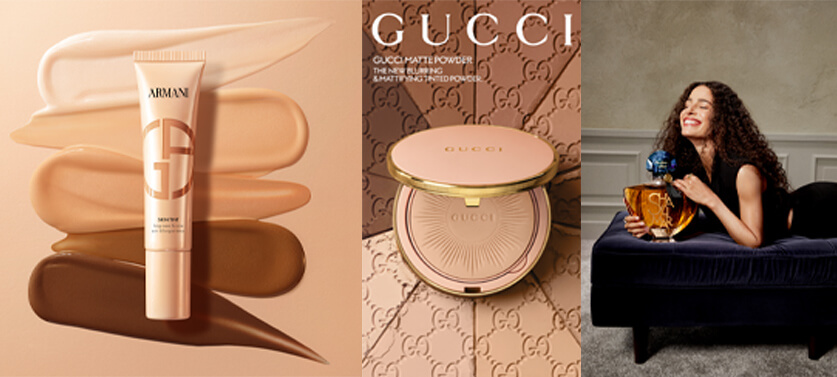BEAUTY
Dermaplaning, a Good Idea?
Victoria Hidoussi - Madame Figaro
28-August-2023

This method, which involves shaving the face with a scalpel to remove hair and exfoliate the skin, has been trending on social media. A dermatologist reveals whether dermaplaning is truly effective and safe.
Baby-soft, smoother, and hair-free skin: these are the promises of "dermaplaning." This facial shaving technique has gone viral on social media in recent years, especially on TikTok, where it has garnered over 4 billion views. The trend has gained even more momentum since actress Eva Mendes recently revealed on Instagram that she practices it "every other day" to combat her excessive hairiness. She also posted a video of herself during a session to demonstrate the effects of this method.
Viral Trend
Like her, beauty influencers and experts are sharing their own experiences massively on these platforms, mostly praising the benefits of dermaplaning. Explicit videos, filmed up close, show all the hair and dead cells being scraped off using a scalpel in a matter of seconds. Afterward, once a facial cleansing is done, the skin appears brighter and smoother, almost like new, without resorting to any chemical products. Even Dr. Shah, a renowned American dermatologist with over 18 million followers on TikTok, has reacted to the trend. "It's a very good treatment that is performed by an aesthetic doctor. It improves the skin's texture and complexion, and helps your beauty products layer better. It also helps remove the small vellus hairs from the skin," he states in a video posted on his account, which has amassed over 29 million views. However, he does warn, "This will make your skin more sensitive. Don't do this more than once a month."
Controversies
However viral the trend may be, it doesn't have unanimous support. Two camps are clashing: on one side, there are avid dermaplaning practitioners who claim that their skin has never been so radiant, their complexion so even, and their makeup so flawless. On the other side, there are those vehemently opposed, denouncing the potential for irritation and the regrowth of darker and thicker hair. This is the case with Molly-Mae Hague, a reality TV contestant and British influencer, who regrets succumbing to the trend. In February 2022, the 24-year-old posted a video on her YouTube channel in which she talked about how the process had made her develop facial hair. "I never should have started dermaplaning. Now, I'm left with a real beard," she shared with her followers, noting that her "peach fuzz" was growing back even faster. "It was supposed to prevent regrowth and reduce it. But like any kind of shaving, like when you shave your legs or armpits, you have to keep doing it more. Once you start, you can't stop," she continued.
Indeed, many healthcare professionals also caution against this trend, not just for aesthetic reasons. "It's a somewhat regressive technique since we no longer perform abrasive scrubs, as dermaplaning is a form of aggressive facial exfoliation. When you irritate the skin in this way, it might defend itself by thickening even more in response," warns Dr. Maia Delage, a dermatologist at Maison Lutétia in Paris, who considers this method an "aberration." However, the specialist contradicts the previous influencer's statement: "Shaved hair doesn't regrow coarser, that's a myth! It appears coarser because it's cut short," she clarifies.
At-Home Dermaplaning
In response to this success, beauty and hygiene brands are launching their own dermaplaning tools, ranging from well-established ones like Wilkinson to younger and trendier options like Estrid. Non-professional versions of these scalpels can be purchased online, at specialized stores, or even major retailers, allowing individuals to perform this treatment on themselves. This derivative trend also sparks debates. "These razors are very good for removing facial hair and evening out the skin texture. Don't worry, your hair won't grow back thicker," assures Dr. Shah in another video posted on his TikTok account. However, the doctor does not recommend them for all skin types: "I would avoid using it on acne-prone skin as it could make things worse."
An enthusiasm that is not shared by Dr. Maia Delage. "Unless you're a surgical expert, it's better not to do it yourself! A scalpel is a surgical instrument that cuts deeply, so it's dangerous to handle it on your own," she warns. "You can cut yourself, experience irritations, and infections. When you create micro-trauma to the skin, bacteria can enter." The dermatologist specifically cautions those with sensitive or reactive skin, those with rosacea or acne, as well as individuals with dry or compromised skin: "The skin can be cut while passing over a papule, which increases the risk of scarring."
Recommended

Kylie Jenner’s Eyebrow Routine
15-December-2025

Gifts for her
27-November-2025



